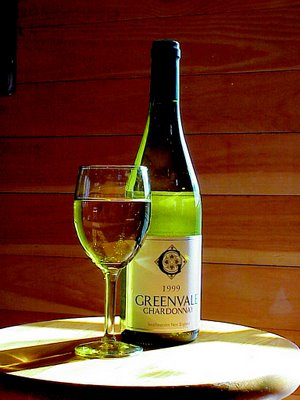Burgundy's Bounty: Chardonnay Good Enough to Split the Papacy
In 1308, Pope Clement V decided to break with Rome, the historical center of Catholic worship, moving the papacy to Avignon, in southeastern France. Many whispered the move was in part due to the wine the popes preferred, which came from Burgundy (Bourgogne), a region of central France. As if to prove them right, Clement issued a papal bull (edict) stating that anyone who exported Burgundy wine to Rome would be excommunicated. The Avignon papacy lasted only 70 years, but thanks to the region's unique climate, Burgundy's Chardonnays have reigned for centuries.
Burgundian Chardonnay is unique for several reasons. The area's soil is hard, rich in minerals, and composed mostly of limestone--not the ideal earth for most agriculture. But Chardonnay grapes flourish there, fighting for water, and absorbing the mineral properties of the soil, taking on what wine connoisseurs call a "steely, minerally quality" that is usually quite noticeable.
The weather in Burgundy is quite cool, even in summer. Less sun creates less sugar in the grapes. Because wine is made through the fermentation of sugar to alcohol, Burgundian Chardonnay is lower in alcohol than its Australian or Californian counterparts. As such, Burgundian Chardonnay is often more delicate and often contains more subtle flavors than other Chardonnay.
In Clement's day, the land was divided between noble families and the church, but after the French Revolution, Napoleon parceled Burgundy off to the middle class, by dividing every landowner's property equally among his sons. Today, Burgundy has several hundred independent vineyard owners, each selling a very small amount of wine. While in other regions, a typical vineyard owner might generate 2,000 to 3,000 cases of wine annually, a Burgundy grower might only produce 20.
(Brexians lair)










Δεν υπάρχουν σχόλια:
Δημοσίευση σχολίου